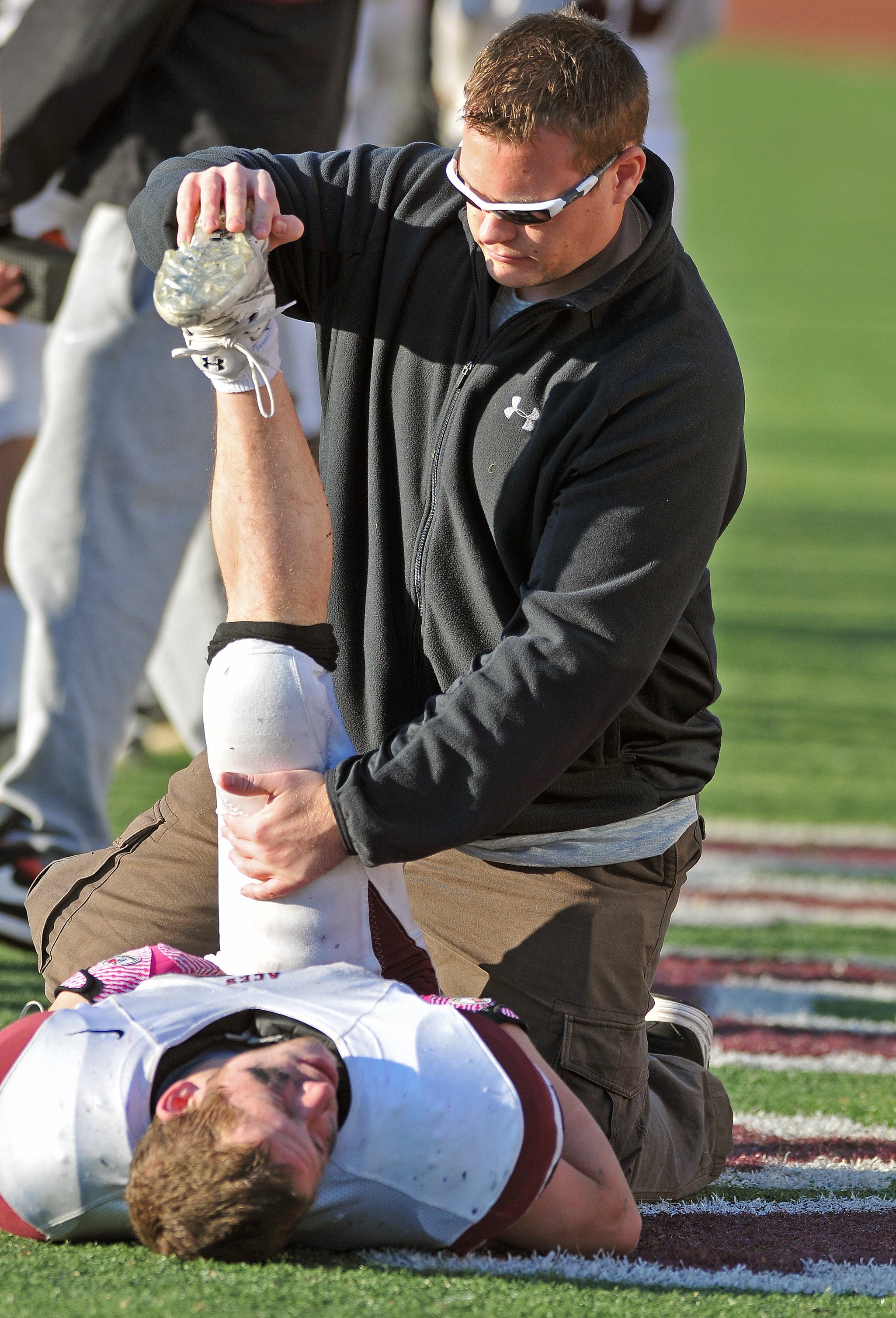5 Qualities of the Best Athletic Trainers
Great athletic trainers (ATs) have a strong work ethic, a positive attitude and a desire to expand their knowledge and skills. What makes a truly exceptional athletic trainer? Here are five essential qualities of the best athletic trainers.
 via shutterstock.com via shutterstock.com |
They are prepared for anything
Every athletic trainer is ready to treat a sudden injury during practice or competition, but the best athletic trainers know being proactive can make it easier to respond to the unexpected.
Savvy ATs develop thorough emergency athletic plans (EAPs) so they can be sure the entire sports medicine team knows how to provide immediate medical care when serious injuries occur. An effective EAP includes details about …
- How members of the athletic training team should communicate with each other as well as with the emergency medical team
- Which equipment should be readily accessible and how it should be maintained
- The proper way to transport injured athletes
- Strategies for continuously improving the EAP
Successful ATs also have a plan for extreme weather conditions, particularly days that are especially warm or humid. This means ensuring athletes are well hydrated and keeping a close eye on athletes for signs of overheating.
They hold the highest of ethical standards
ATs have access to sensitive (and sometimes controversial) information about the athletes they treat. This could be the fact an athlete has sustained a season-ending or career-ending injury or it may be that an athlete is suspected of using (or actually is using) performance-enhancing substances.
Whatever the case may be, the best athletic trainers understand they must handle this type of information carefully in order to avoid breaching an athlete’s trust or opening the organization up to legal issues. Most importantly, experienced ATs know the safety of the athlete is of the utmost importance and understand there are instances when failing to share information may put the athlete at risk.
Honest and trustworthy
Demonstrating integrity is not just important when it comes to matter of confidentiality; successful ATs understand being ethical and honest is necessary for establishing a good rapport with their athletes. If an athlete doesn’t trust or respect the athletic trainer, it is unlikely he or she will be comfortable receiving treatment from the trainer and/or be compliant with the rehabilitative program the trainer has created.
In his 2006 article, “The Problem of the Sports Doctor: Serving Two (Or Is It Three or Four?) Masters,” Furrow advises sports medicine professionals to be candid with athletes about the nature and extent of an injury as well as the ramifications of returning to play. Exceptional ATs know to be 100% honest and not sugarcoat any part of the detail regarding an injury. Providing inaccurate information only gives the athlete false hope and can impact the success of post-injury treatment.
Adaptable
While some athletic trainers (ATs) may be assigned to one particular team, many are responsible for treating multiple teams across multiple sports. This means the AT must be ready to treat the various types of injuries which may be common in one sport and not another.
 via shutterstock.com |
For example, a basketball player is at a higher risk of ankle sprains than a baseball player, but a baseball player is more likely than a basketball player to sustain a shoulder injury. Because taking care of different injuries requires different equipment, supplies and treatments, superior ATs can quickly move from one sport to another and adjust their approach accordingly.
They treat the athlete as a whole
Of course athletic trainers are responsible for helping athletes with their physical health, but the best athletic trainers understand the emotional and psychological impact of an injury as well.
The athletic trainer is the first person an athlete will see following an injury and the one the athlete will see on a regular basis during rehabilitation. Exceptional ATs are supportive of athletes at their lowest moments and encourage them to stay positive during the nonlinear rehabilitation process which contains times of progress, times of plateaus and times of regression. These athletic trainers do their best to help athletes maintain a positive attitude since they know the athletes who can stay optimistic will recover more quickly than those who don’t.
Being an outstanding athletic trainer is no easy task. It can be physically, mentally and emotionally exhausting. The best athletic trainers know how to use their education and experience to maintain high levels of flexibility, act as role models for novice and veteran ATs and create an environment where athletes feel encouraged, supported and safe.
This blog was written by Jennifer Clark and was posted here on Tuesday, August 15, 2017.




.webp)

